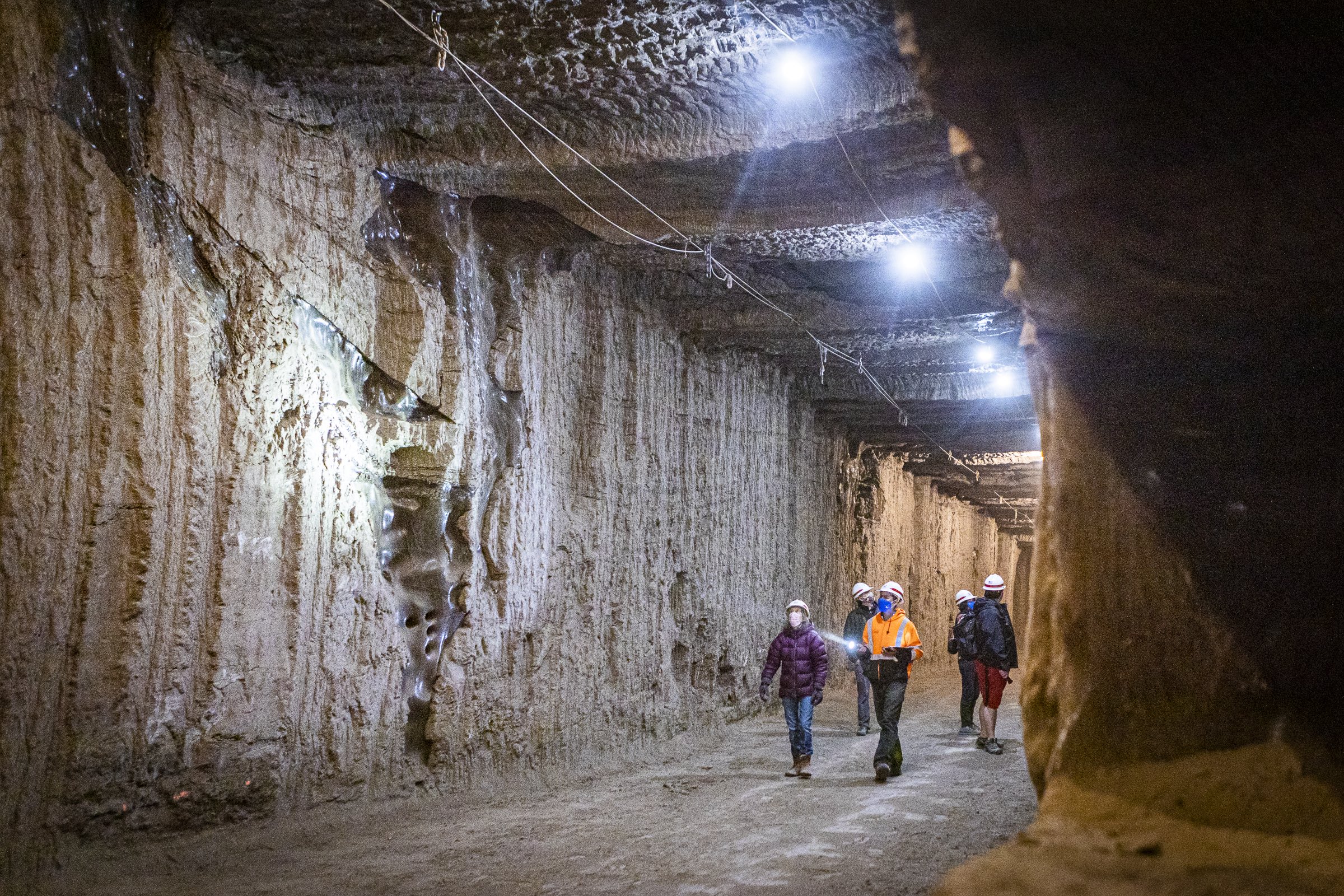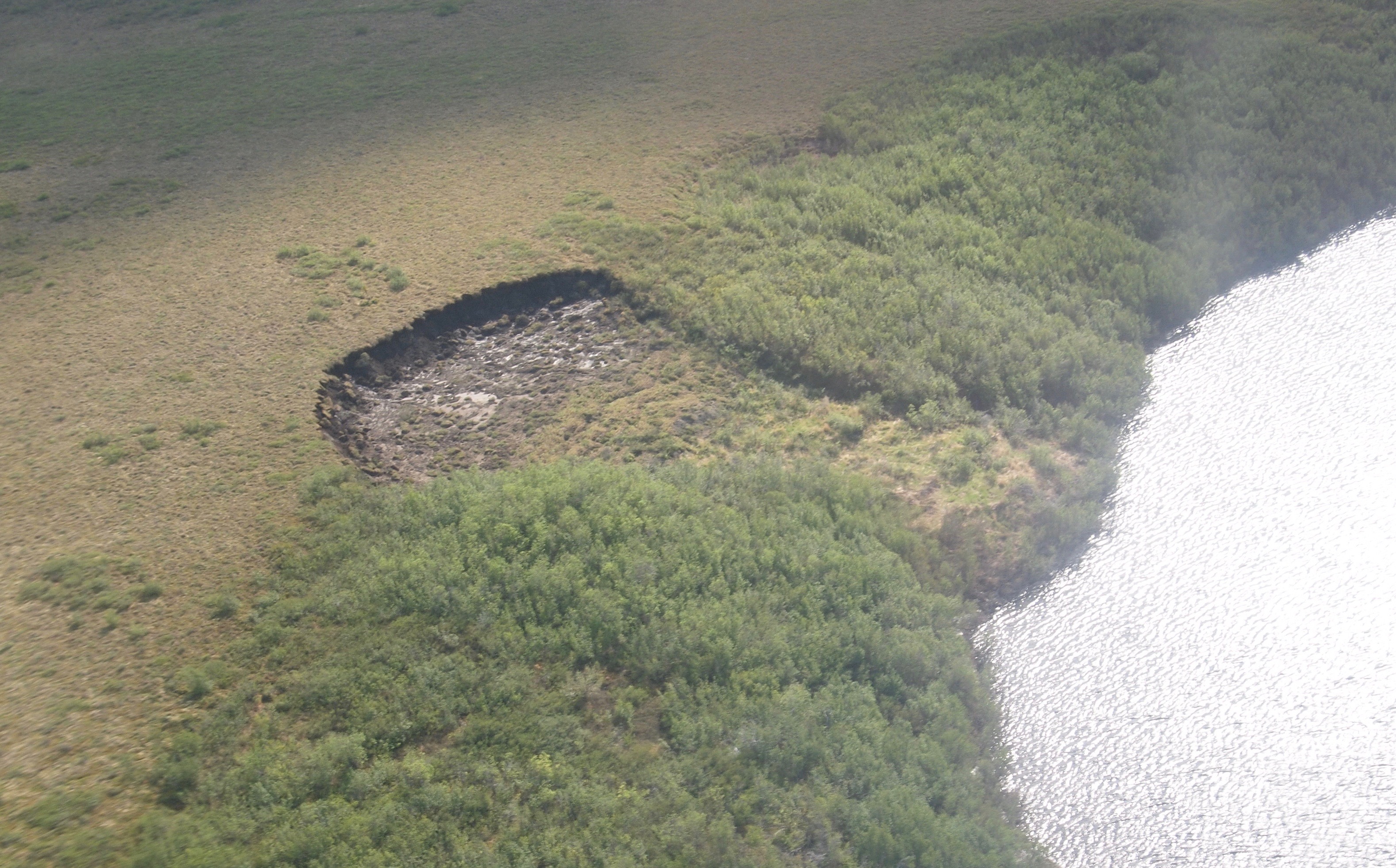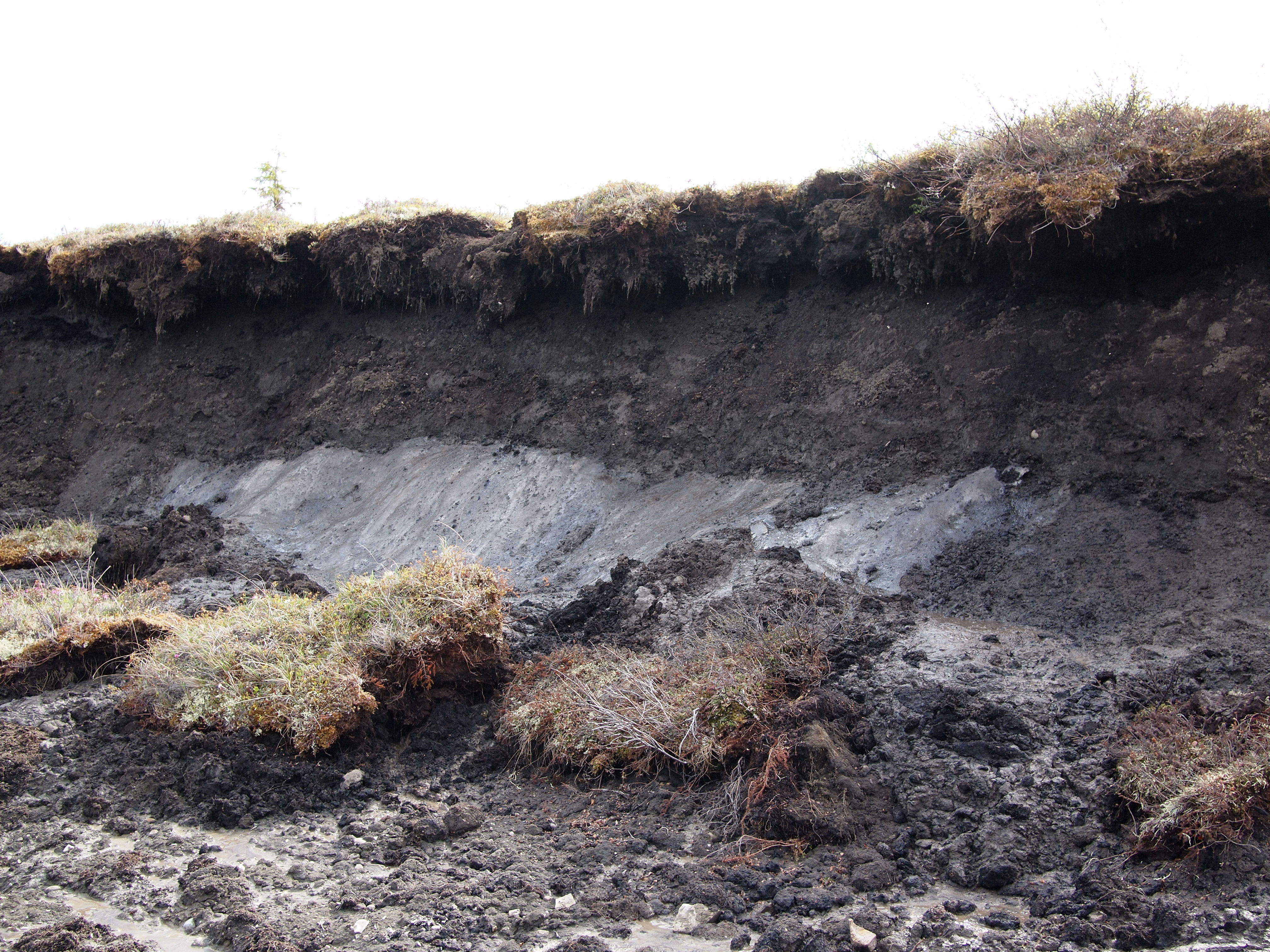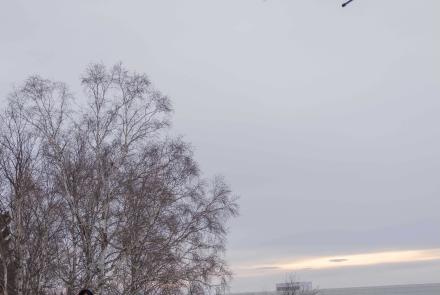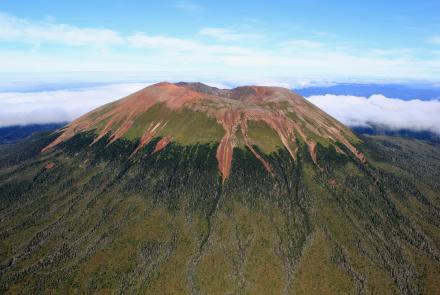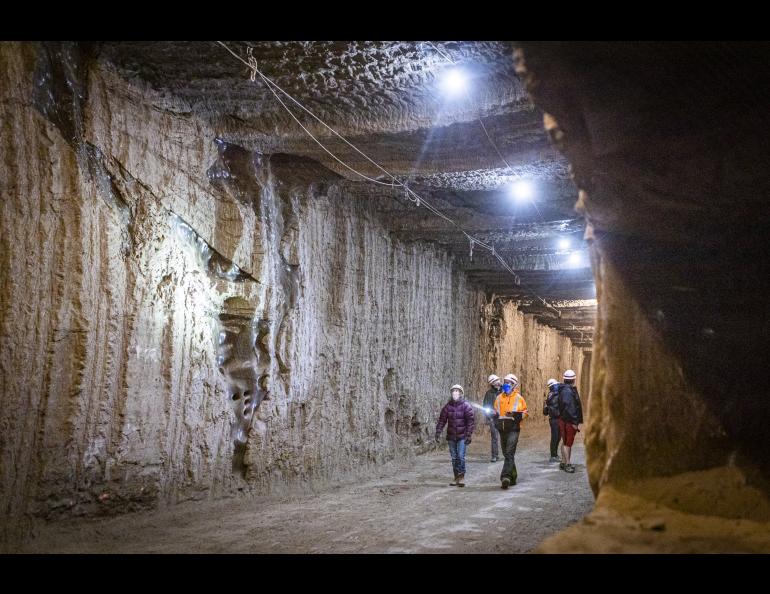
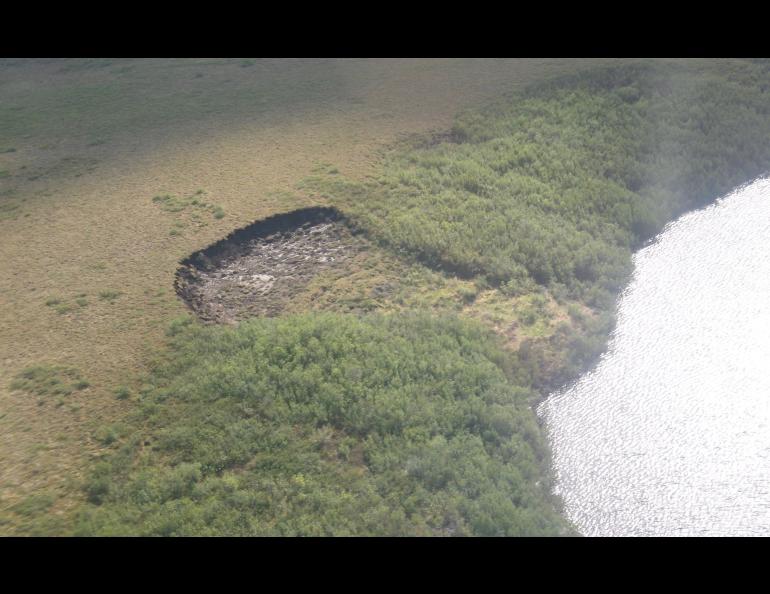
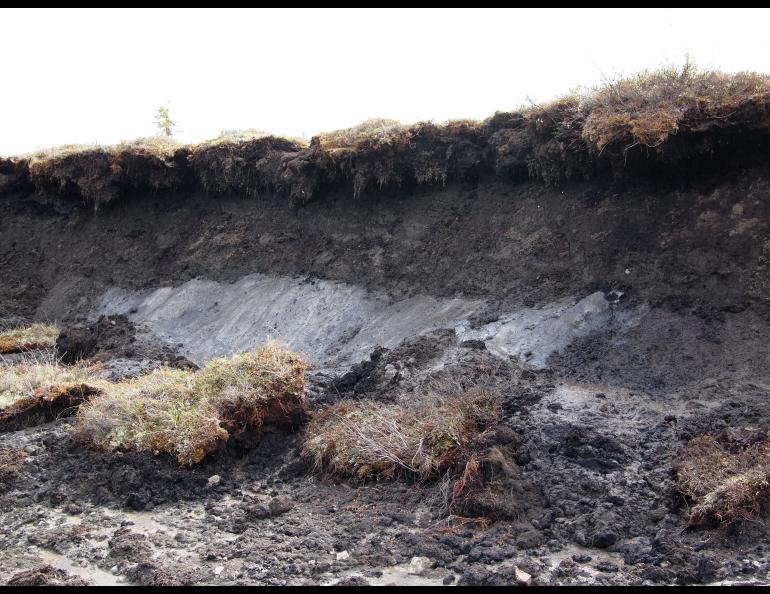
UAF scientists heading to international permafrost conference
About 20 University of Alaska Fairbanks scientists will present research at the quadrennial International Conference on Permafrost, which opens Sunday in Whitehorse, Yukon.
Most UAF presenters are from the Geophysical Institute, which has a Snow, Ice and Permafrost Group of faculty and student researchers. Scientists from UAF’s Institute of Arctic Biology, International Arctic Research Center, Institute of Northern Engineering and College of Natural Science and Mathematics will also show their research.
The weeklong conference is hosted by the Canadian Permafrost Association.
“Given the importance of permafrost and its role in Earth’s climate, there are, unfortunately, not many permafrost-dedicated conferences in the world,” said Dmitry Nicolsky, UAF Geophysical Institute research associate professor.
“Given the time span of several days, the ICOP provides plenty of opportunities to meet with our colleagues from different countries to gain knowledge about the health of permafrost on the planetary scale,” he said.
The various categories of permafrost — continuous, discontinuous and sporadic — underlie approximately 25% of the Northern Hemisphere’s exposed land surface, according to the National Snow and Ice Data Center. Exposed land is land that is not covered by glaciers.
More than a dozen Geophysical Institute scientists will present work on a variety of permafrost subjects, including the following:
• Integration of remote sensing and field observations to map discontinuous permafrost in McGrath, Interior Alaska, by research assistant professor Alexander Kholodov.
• Assessment of permafrost changes in the 21st century in Alaska’s Arctic, by Nicolsky.
• Estimation rates of permafrost degradation and their impact on ecosystems across Alaska, by research associate professor Sergey Marchenko.
• Observing coastal change and permafrost dynamics in three Arctic communities, by research assistant professor Louise Farquharson.
Christopher Burn, president of the International Permafrost Association, said it is important for northerners to understand the implications of continued climate heating.
“Many countries in the world will be affected by sea level rise as the Greenland Ice Sheet melts away and the same happens in parts of Antarctica,” said Burn, a geography professor at Carleton University in Ottawa. “Fewer will have a problem with permafrost, but for northerners and people who live in regions of high mountains, the consequences are already apparent and will only continue in one direction.”
Burn said Earth’s permafrost regions will soon become net sources of greenhouse gases as they switch from being carbon sinks.
Maintaining infrastructure will be difficult as rainfall and snowmelt regimes become magnified with greater amounts of moisture in the atmosphere, Burn said. And contaminants such as mercury that have been frozen in the ground for years will be released as permafrost thaws.
Guy Doré, president of the Canadian Permafrost Association, said the conference is the perfect occasion for participants to get updated on permafrost science, engineering and management.
“Community leaders are trying to better understand and manage the risks related to permafrost degradation,” he said. “Scientists are trying to develop a better understanding of factors contributing to its degradation and on the impact of degrading permafrost.
“And engineers are trying to better understand the complex interaction between permafrost and structures and to develop low-impact construction practices and sustainable solutions for degrading foundations,” he said.
The International Conference on Permafrost is held every four years, though this will be the first since the 2016 conference in Potsdam, Germany. The 2020 conference in China was canceled because of the COVID pandemic.
• Dmitry Nicolsky, University of Alaska Fairbanks Geophysical Institute, djnicolsky@alaska.edu
• Rod Boyce, University of Alaska Fairbanks Geophysical Institute, 907-474-7185, rcboyce@alaska.edu

